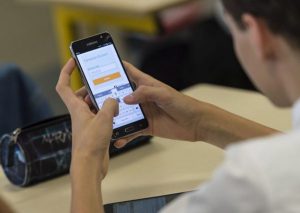The person in charge of the prison uses signal interference equipment to prevent prisoners from using mobile phones in the prison. The Ministry of Corrections document seen by Sowetan said it was in negotiations with the South African Independent Communications Authority (SA) to “explore various technical and legal solutions, including but not limited to cell phone interference.”
The ministry also plans to expand the scale of installing mobile phone detection systems in various prisons to help officials identify and remove unauthorized communication equipment. Currently, mobile phone detectors are installed in 39 prisons, and 14 human body scanners will also be installed in 7 prisons to help authorities stop smuggling of mobile phones.

According to the Icasa Spectrum Guide, South Africa prohibits the use of any interference equipment, including cell phone interference, for the sake of safe and efficient electronic communications. However, after using signal interference equipment during President Jacob Zuma’s speech, Icasa stated that the use of interference equipment by entities other than the National Security Team was not authorized or authorized. At that time, the authorities stated that the National Security Team can use the portable jammer as part of its safety functions, including the state, with the support of relevant safety regulations.
Several media companies and the SA National Editors ’Forum have appealed the decision of the Western Cape High Court, which rejected their request to declare the use of signal jammer devices illegal in Parliament. The prisoner from Cape Town Pollsmoor recently created his own Facebook page and started to make a splash when he started wearing his orange prison uniform to post his pictures.
In June, Chief Justice Mahube Molemela of the Free State wrote a report after conducting a judicial inspection of the Zonderwater prison in Cullinan (Cwani). Molemela found that there was a serious problem with the smuggling of drugs and mobile phones in prisons, mainly due to a shortage of personnel and crowded public cells.
But the judge also found that because the prison received basic adult education and training from SA University learners and 11 students, prisoners should be allowed to carry laptops in their cells.
“There is no reason not to allow the use of laptops in student cells. Laptops without access to the Internet will not pose a threat to the safety of the facility,” Mollmera said. South African courts have ruled that student prisoners in higher education institutions wishing to access the Internet in universities must be monitored and “strictly used for learning”.Paseka Maleka of Icasa did not respond to a request for comment posted on Thursday. Logan Correctional Institution Maistry said he needs more time to respond.